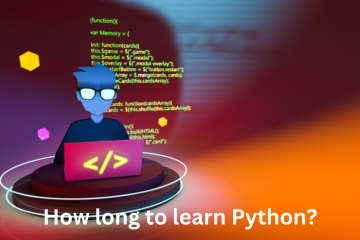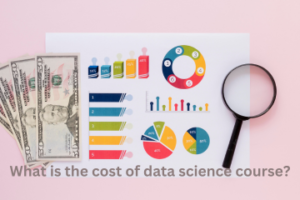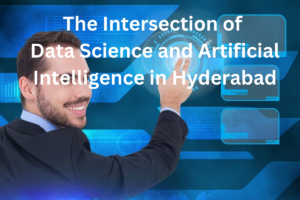Table of Contents
ToggleThe time required to learn Python can vary depending on various factors, including your prior programming experience, the amount of time you dedicate to learning, and the depth of knowledge you aim to achieve. However, Python is generally considered to be a beginner-friendly programming language with a relatively gentle learning curve.
With consistent effort and focused learning, you can become proficient in Python in a few months. Learning the basics of Python syntax and fundamental concepts can take a few weeks of dedicated study and practice. This includes understanding variables, data types, control structures (such as loops and conditionals), functions, and basic file operations.
Once you have grasped the fundamentals, you can gradually expand your knowledge and dive into more advanced topics such as object-oriented programming, modules and packages, handling exceptions, working with databases, and web development. The timeline for mastering these topics can vary based on your learning pace and the complexity of the subject matter.
It’s worth noting that learning programming is an ongoing process, and proficiency comes with practice and hands-on experience. As you work on projects and engage in coding exercises, you’ll continue to deepen your understanding of Python and gain proficiency in solving real-world problems.
The most effective way to learn Python or any programming language is through a combination of studying concepts, practicing coding exercises, and working on projects to apply your knowledge. Online tutorials, textbooks, coding challenges, and interactive coding platforms can all be valuable resources to aid your learning journey.
Getting Started:
Python installation: Download and install Python from the official website (python.org) based on your operating system.
Text editors and Integrated Development Environments (IDEs): Choose a code editor or IDE to write and run your Python code. Popular options include Visual Studio Code, PyCharm, and IDLE (comes bundled with Python).
Are you looking to become a Data science expert? Go through 360DigiTMG’s in Best Data Science in Bangalore
Python versions: Understand the differences between Python 2.x and Python 3.x. It’s recommended to learn Python 3 as it is the current and future version of Python.
Basic Syntax and Concepts:
Variables and data types: Learn how to declare variables and work with different data types like numbers, strings, lists, tuples, dictionaries, etc.
Control structures: Understand loops (for and while loops) and conditionals (if-else statements) to control the flow of your program.
Functions: Learn how to define and use functions to create reusable blocks of code.
Input and output: Explore ways to take user input and display output using print statements.
Intermediate Python:
File operations: Learn how to read from and write to files using Python.
Error handling: Understand how to handle exceptions and errors using try-except blocks.
Earn yourself a promising career in Best Data Scientist by enrolling in Best Data Science in Chennai Program offered by 360DigiTMG.
Modules and packages: Explore the concept of modules and packages to organize and reuse code. Learn how to import modules and use third-party packages.
Object-oriented programming (OOP): Dive into the principles of OOP, including classes, objects, inheritance, and polymorphism.
Advanced Topics:
Learn the core concepts of Data Science Course video on Youtube:
Working with databases: Learn how to connect to databases, execute queries, and fetch data using Python libraries like SQLAlchemy or SQLite.
Web development: Explore web frameworks like Django or Flask to build web applications using Python.
Data manipulation and analysis: Discover libraries like NumPy and pandas to manipulate and analyze data efficiently.
GUI development: Learn how to create graphical user interfaces using libraries like Tkinter or PyQt.
Practice and Projects:
Coding exercises: Solve coding challenges on platforms like LeetCode, HackerRank, or Project Euler to strengthen your problem-solving skills.
Personal projects: Undertake small projects to apply your knowledge and build real-world applications. Examples could include a simple calculator, a task manager, or a web scraper.
Online Resources and Communities:
Online tutorials and courses: Explore platforms like Codecademy, Coursera, Udemy, and edX, which offer a wide range of Python courses for beginners and advanced learners.
Looking forward to becoming a Data scientist Expert? Check out the Best Data Science in Pune and get certified today.
Documentation and official resources: Refer to the official Python documentation (docs.python.org) for detailed information about Python syntax, standard libraries, and best practices.
Online coding communities: Join online communities like Stack Overflow and Reddit’s r/learn python to ask questions, seek guidance, and learn from experienced Python developers.
Debugging and Troubleshooting:
Learn how to debug your Python code by using debugging tools and techniques. Understand common error messages and how to troubleshoot them effectively.
Use print statements and logging to track the flow of your program and identify any issues.
Version Control and Collaboration:
Familiarize yourself with version control systems like Git, which allow you to track changes in your code, collaborate with others, and revert to previous versions if needed.
Platforms like GitHub or GitLab provide hosting services for your Git repositories, where you can share and collaborate on Python projects.
Continual Learning and Practice:
Stay updated with the latest trends and updates in the Python ecosystem by following blogs, podcasts, and newsletters related to Python and programming.
Engage in coding challenges, participate in coding competitions, or contribute to open-source projects to further enhance your skills and gain real-world experience.
Expand Your Knowledge:
Python offers a wide range of specialized libraries and frameworks for various domains such as data science (NumPy, pandas, scikit-learn), web scraping (Beautiful Soup, Scrapy), and machine learning (TensorFlow, PyTorch). Explore these areas based on your interests and career goals.
Code Review and Collaboration:
Becoming a Data science Expert! is possible now with the 360DigiTMGBest Data Science in Hyderabad. Get trained by the alumni from IIT, IIM, and ISB.
ngage in code reviews with peers or experienced developers. This process allows you to receive feedback on your code and learn from others’ approaches and suggestions.
Collaborate on projects with fellow learners or developers to gain insights into working in a team setting, understanding codebase organization, and practicing good coding practices.
Performance Optimization:
Learn techniques to optimize your Python code for better performance. This includes understanding algorithmic complexity, using efficient data structures, and employing optimization strategies like memoization or vectorization.
Testing and Test-Driven Development (TDD):
Explore testing frameworks like pytest or unittest to write test cases and ensure the correctness and reliability of your code.
Familiarize yourself with the principles of Test-Driven Development (TDD), where you write tests before implementing functionality. This approach promotes code quality, maintainability, and bug detection.
Documentation and Writing Readable Code:
Document your code using clear comments and docstrings to make it more readable and understandable for others (including future you!).
Follow Python’s official style guide, known as PEP 8, to maintain consistent and readable code formatting.
Data Science Placement Success Story
Data Science Training Institutes in Other Locations
Tirunelveli, Kothrud, Ahmedabad, Hebbal, Chengalpattu, Borivali, Udaipur, Trichur, Tiruchchirappalli, Srinagar, Ludhiana, Shimoga, Shimla, Siliguri, Rourkela, Roorkee, Pondicherry, Rajkot, Ranchi, Rohtak, Pimpri, Moradabad, Mohali, Meerut, Madurai, Kolhapur, Khammam, Jodhpur, Jamshedpur, Jammu, Jalandhar, Jabalpur, Gandhinagar, Ghaziabad, Gorakhpur, Gwalior, Ernakulam, Erode, Durgapur, Dombivli, Dehradun, Cochin, Bhubaneswar, Bhopal, Anantapur, Anand, Amritsar, Agra , Kharadi, Calicut, Yelahanka, Salem, Thane, Andhra Pradesh, Greater Warangal, Kompally, Mumbai, Anna Nagar, ECIL, Guduvanchery, Kalaburagi, Porur, Chromepet, Kochi, Kolkata, Indore, Navi Mumbai, Raipur, Coimbatore, Bhilai, Dilsukhnagar, Thoraipakkam, Uppal, Vijayawada, Vizag, Gurgaon, Bangalore, Surat, Kanpur, Chennai, Aurangabad, Hoodi,Noida, Trichy, Mangalore, Mysore, Delhi NCR, Chandigarh, Guwahati, Guntur, Varanasi, Faridabad, Thiruvananthapuram, Nashik, Patna, Lucknow, Nagpur, Vadodara, Jaipur, Hyderabad, Pune, Kalyan.
Data Analyst Courses In Other Locations
Tirunelveli, Kothrud, Ahmedabad, Chengalpattu, Borivali, Udaipur, Trichur, Tiruchchirappalli, Srinagar, Ludhiana, Shimoga, Shimla, Siliguri, Rourkela, Roorkee, Pondicherry, Rohtak, Ranchi, Rajkot, Pimpri, Moradabad, Mohali, Meerut, Madurai, Kolhapur, Khammam, Jodhpur, Jamshedpur, Jammu, Jalandhar, Jabalpur, Gwalior, Gorakhpur, Ghaziabad, Gandhinagar, Erode, Ernakulam, Durgapur, Dombivli, Dehradun, Bhubaneswar, Cochin, Bhopal, Anantapur, Anand, Amritsar, Agra, Kharadi, Calicut, Yelahanka, Salem, Thane, Andhra Pradesh, Warangal, Kompally, Mumbai, Anna Nagar, Dilsukhnagar, ECIL, Chromepet, Thoraipakkam, Uppal, Bhilai, Guduvanchery, Indore, Kalaburagi, Kochi, Navi Mumbai, Porur, Raipur, Vijayawada, Vizag, Surat, Kanpur, Aurangabad, Trichy, Mangalore, Mysore, Chandigarh, Guwahati, Guntur, Varanasi, Faridabad, Thiruvananthapuram, Nashik, Patna, Lucknow, Nagpur, Vadodara, Jaipur, Hyderabad, Pune, Kalyan, Delhi, Kolkata, Noida, Chennai, Bangalore, Gurgaon, Coimbatore.
For more information
360DigiTMG – Data Analytics, Data Science Course Training Hyderabad
Address – 2-56/2/19, 3rd floor,,
Vijaya towers, near Meridian school,,
Ayyappa Society Rd, Madhapur,,
Hyderabad, Telangana 500081
099899 94319
https://goo.gl/maps/sn21C9xFtMbCr4qm8
Source Link : What are the Best IT Companies in Uppal



